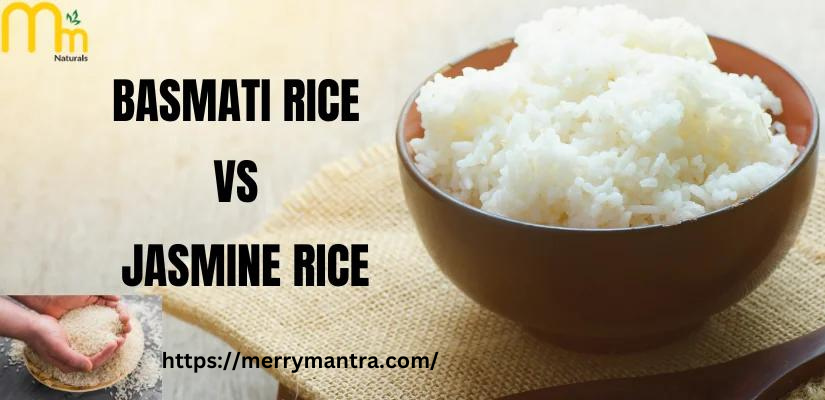Rice is one of the most consumed food items all over the world. In a wide range of rice, two dominant varieties (Basmati Rice vs. Jasmine Rice). Basmati rice generally belongs to the foothills of the Himalayas and is mostly grown in areas of India and Indian sub-continentals. While jasmine rice originally belonged to Thailand. Basmati rice and jasmine rice, both have low amounts of fat, but these will give you a boost with protein.
In addition, basmati rice is well-known for its floral and rich aroma, and for the easy process of cooking. Jasmine rice also has a delightful aroma, and it comes in a variety of colors including white, brown, black, and several others. Both of these rice types have different culinary experiences based on their taste, flavor, texture, and uses with other food items.
In this article, we will discuss Basmati Rice vs jasmine Rice, These are two types of rice that are basmati rice and jasmine rice on the basis of key characteristics such as their origin, flavor, texture, and many others.
What are Basmati Rice and Jasmine Rice?
The fragrance of each rice puts depth and complexity to the dishes and improves the overall pleasure of eating. Here is a detailed review of basmati and jasmine rice.
Basmati rice
Basmati rice was originally cultivated in the subcontinent of India, primarily in various states such as J & K, Himachal Pradesh, Punjab, Haryana, Delhi, Uttarakhand and western Uttar Pradesh. Apart from India, it can be found in Pakistan, Sri Lanka, and Nepal.
The basmati word stands for “Rich of aroma” or “fragrant”. In some countries, it is known as the “queen of fragrant rice”. This rice can be served as a complementary food item with several dishes such as biryani, soups, stews, vegetable dishes, proteins, and pilaf.
Jasmine Rice
Jasmine rice was originally cultivated in Thailand and other Eastern Asian countries. It has several varieties available in the market in different colors which include white, black, brown, and others. This cooked rice also can be served with a variety of side dishes like curries, herbs, or any savory dish.
Similarities between Basmati and Jasmine Rice
Basmati and jasmine rice capture traditional culture in their respective regions and both have their own unique characteristics. The several similarities between these two rice are mentioned below:
- Basmati and jasmine rice are famous for their aromatic qualities.
- Both of these rice are of the long grain variety, which means that both types of rice are fluffy and not too sticky.
- These two rice have similar texture and taste.
- Both kinds of rice have aromatic odors that give them a popcorn-esque aroma or pandan-like aroma.
Difference between Basmati and Jasmine Rice
- Based on the variable, basmati and jasmine rice may differ from each other. The differences between these two rice are mentioned below:
- Basmati rice hails from India and Pakistan, while Jasmine rice comes from Thailand.
- The grains of these rice also differ, with jasmine rice being thicker and slightly moister than basmati rice, which has a chewier, drier quality and many other qualities.
- Jasmine rice gets cooked in 8 to 10 minutes, and basmati rice takes a time duration of 9 to 12 minutes.
- Basmati rice has a nuttier quality, although jasmine rice has a more than faintly floral.
- Jasmine rice is a broad and short-grain rice that requires washing a few times to detach extra starch. Whereas basmati rice is an extra thin and extra long rice, and according to certain people, the extraordinary benefits of this rice can be experienced after soaking it.
Conclusion
Wrapping the article with the conclusion that each rice type offers a delicious food experience. Each variety of rice has a different texture and special aroma. When it comes to taking a different cushion or culinary experience, we believe that you should try every food item at least once.
Basmati and jasmine rice are two very famous and well-known for their unique allure. It all depends on your personal needs and preferences on which rice you like.

